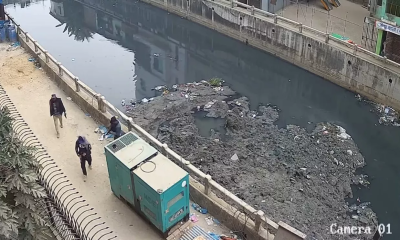Plastic pollution has emerged as one of the most pressing environmental issues of our time, posing significant threats to both human health and the environment. As we observe World Environment Day today (June 5, 2023), it is crucial to shed light on the harmful effects of plastic pollution and raise awareness about the urgent need for action. This global observance serves as a timely reminder that the choices we make today have far-reaching consequences for the well-being of our planet and future generations.
Harmful Effects of Plastic Pollution on Human Health
Plastic pollution has become a major environmental concern in recent years, and its impact on human health is a growing area of research. Here are some of the harmful effects of plastic pollution on human health.
Exposure to Microplastic
Microplastics, small plastic particles less than 5 millimeters in size, have infiltrated various aspects of our lives, including our food and water sources. These tiny particles are found in high concentrations in the oceans, freshwater bodies, and even the air we breathe. Seafood, such as fish and shellfish, often contain microplastics due to their ingestion of plastic debris in the marine environment. As a result, when we consume these contaminated seafood, we unknowingly ingest microplastics.
Microplastics can accumulate in our bodies over time, causing potential harm. These particles can pass through the intestinal wall and migrate to other organs, leading to inflammation, tissue damage, and disruption of normal cellular functions. Some studies suggest that microplastics may also have the potential to transport harmful chemicals and pathogens, further exacerbating health risks.
Chemical Exposure
Many plastic products contain a variety of chemicals that can leach into the environment and potentially enter our bodies. Bisphenol A (BPA) and phthalates are examples of chemicals commonly found in plastic items, such as food containers, bottles, and even children`s toys. These chemicals are known as endocrine disruptors, meaning they can interfere with the normal functioning of hormones in our bodies.
These have been linked to reproductive issues, hormone imbalances, and an increased risk of certain cancers. Phthalates, commonly used in plastic packaging and personal care products, have been associated with developmental problems, impaired fertility, and respiratory issues.
Respiratory Problems
Plastic pollution not only affects our bodies internally but also poses risks to our respiratory system. When plastic waste is burned, either intentionally or accidentally, it releases toxic fumes and particulate matter into the air. Inhaling these pollutants can lead to respiratory problems such as coughing, wheezing, asthma, and even more severe conditions like chronic obstructive pulmonary disease (COPD) and lung cancer.
Allergies and Skin Irritation
Certain individuals may develop allergies or skin irritation due to contact with plastic materials. Some plastics contain additives, dyes, and other chemicals that can trigger allergic reactions or skin sensitivities. For instance, latex, a type of plastic, can cause allergic reactions in susceptible individuals.
Disruption of Gut Microbiota
Emerging research suggests that plastic pollution may also disrupt the delicate balance of our gut microbiota, the trillions of beneficial bacteria that inhabit our digestive system. The ingestion of microplastics can alter the composition of gut bacteria, potentially leading to digestive issues, immune system dysregulation, and other health complications.
Harmful Effects of Plastic Pollution on the Environment
Here are some of the ways in which plastic pollution affects the environment.
Marine Life
Plastic pollution has a devastating impact on marine life. Marine animals such as turtles, whales, and seabirds can mistake plastic for food and ingest it, leading to injury, suffocation, and death. According to a study by Jenna Jambeck, a University of Georgia environmental engineer, it is estimated that up to 8 million metric tons of plastic waste enter the oceans each year, causing harm to marine life.
Land Pollution and Ecosystem Disruption
Plastic pollution also affects land ecosystems. Plastic waste can take hundreds of years to decompose, and it can accumulate in landfills, polluting the soil and groundwater. Plastic waste can also be carried by wind and water, leading to littering and pollution of natural habitats.
Plastic pollution disrupts the ecological balance and impairs the functioning of ecosystems. When plastic waste accumulates in bodies of water or on land, it hinders the growth and survival of plants and animals. Plastic debris can block sunlight from reaching underwater vegetation, reducing photosynthesis and affecting the entire food chain. Additionally, the introduction of plastic materials into ecosystems can disrupt natural nutrient cycles and alter habitats.
Climate Change
The production and disposal of plastic products require significant amounts of energy, which contributes to greenhouse gas emissions. According to a study published by the OECD, the production of plastic products in 2019 alone resulted in greenhouse gas emissions equivalent to 1.8 billion metric tons of carbon dioxide.
Economic Impact
Plastic pollution has a significant economic impact. The cost of cleaning up plastic waste and the damage caused by plastic pollution to industries such as fishing and tourism can be significant.
How Can We Stop Plastic Pollution, and What are the Alternatives?
Stopping plastic pollution requires a concerted effort from individuals, businesses, and governments. One of the most effective ways to reduce plastic pollution is to reduce the use of single-use plastics such as straws, plastic bags, and water bottles. This can be achieved by using reusable alternatives such as metal straws, cloth bags, and refillable water bottles.
Recycling is also an important part of reducing plastic pollution, and it is important to properly dispose of plastic waste to prevent it from ending up in the environment. Governments can also play a role in reducing plastic pollution by implementing policies such as plastic bag bans and taxes on single-use plastics. Businesses can also take steps to reduce plastic pollution by using sustainable packaging and reducing the use of plastic in their products. Ultimately, stopping plastic pollution requires a collective effort to reduce plastic use, properly dispose of plastic waste, and promote sustainable alternatives.
Final Words
As we observe World Environment Day today, it is imperative that we recognize the dire consequences of plastic pollution and take meaningful action to address this global crisis. Governments, industries, and individuals must come together to reduce plastic production, promote recycling and waste management, and embrace sustainable alternatives.
















-20260301064029.webp)



-20260228080513.webp)




-20260224075258.webp)






-20260225072312.webp)
